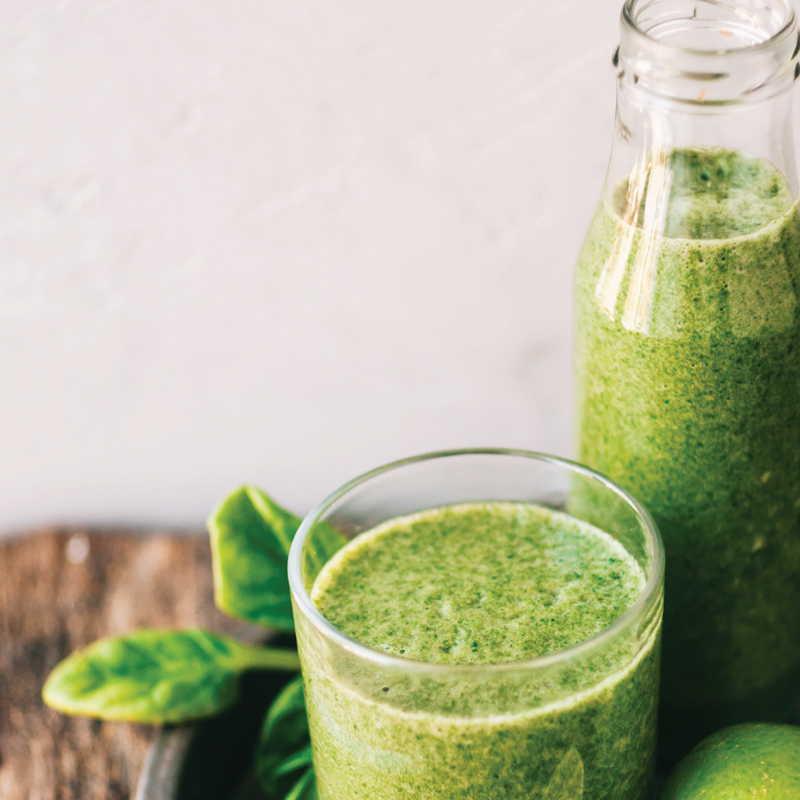
Feeling tired? It could be an underactive thyroid…
If you’re constantly exhausted even after a good night’s sleep, you’re struggling with weight gain and you’re having difficulty concentrating — there’s a chance you could have an undiagnosed thyroid condition called Hypothyroidism.
Hypothyroidism is the most common thyroid disorder in Australia. It mainly affects women — with estimates that 10 times more women than men have hypothyroidism. The problem is that most symptoms are so common for women, and they come on so gradually, that they are often overlooked.
I want to share with you the warning signs to look out for, and what you can do to manage Hypothyroidism naturally.
What is Hypothyroidism?
Put simply, Hypothyroidism is the term for an underactive thyroid. It occurs when your thyroid gland doesn’t produce enough thyroid hormone or when the hormone is not being converted properly for your body to use.
In Australia, the most common cause of hypothyroidism is the autoimmune disease known as Hashimoto’s thyroiditis. Hashimoto’s occurs when the immune system becomes confused and starts to attack the thyroid gland. This leads the thyroid to produce less thyroid hormone, often to the point where synthetic thyroid hormone replacement needs to be taken.
What are the symptoms of Hypothyroidism?
The symptoms of an underactive thyroid include:
-
Fatigue/exhaustion/low energy (even after a good sleep)
-
Constipation
-
Weight gain
-
Increased intolerance to cold (related to poor circulation)
-
Dry hair/skin
-
Sluggishness
-
Muscle weakness
-
Poor memory and concentration
-
Depression
-
Infertility in women
-
Losing the outer third of your eyebrows
What causes Hypothyroidism?
There are actually many things that may cause or trigger Hypothyroidism, including:
-
Family history — some people are more susceptible than others, and these issues can skip generations.
-
Autoimmune — as mentioned, a history of autoimmune problems can trigger Hypothyroidism.
-
Stress — if you’re going through a long period of relentless stress, your body can actually develop thyroiditis.
-
Diet — nutritional deficiencies in iodine, tyrosine, zinc, selenium, vitamin D or iron can all lead to thyroid issues, as can acid stress (a long disruption of your body’s pH level). Goitrogenic foods may also influence thyroid production.
-
Celiac Disease — this is an autoimmune response to the consumption of gluten. This disease can often increase the likelihood of you getting Hashimoto’s.
-
Leaky gut — this occurs when the intestinal lining becomes inflamed, making it ‘leaky’ or permeable. This allows unwanted substances like bacterial waste, food particles and toxins into the bloodstream, causing unnecessary stress on your body. This can eventually lead to thyroid problems, among a host of other conditions.
What should I do if I think I have Hypothyroidism?
-
Get tested
If you are experiencing a combination of some of these symptoms, there’s a chance you may have a thyroid problem. The first thing you need to do is get tested. But, before you do, read my blog on why your thyroid test might be wrong. Instead, ask your Naturopath for a referral to have the following tested:
-
TSH
-
Free T4
-
Free T3
-
Thyroid Antibodies
-
Reverse T3
This will tell the full story of what is happening with your thyroid and uncover any underlying conditions that might be affecting its hormone production.
2. Take a look at your diet
Often when patients are struggling with an underactive thyroid, they look to caffeine and alcohol to give them the boost and wind-down that they need to get through the day. Bad news — this is terrible for your thyroid, adrenal glands and stress levels!
There are a few simple rules to follow when eating for good thyroid health:
-
Avoid caffeine and alcohol
-
Cut out sugar and other refined foods — sugar places undue stress on your thyroid and adrenal glands.
-
Increase your protein intake — make sure to have a good balance of protein to complex carbohydrates, as well as good fats.
-
Boost your intake of these thyroid-loving foods.
3. Make some changes to your lifestyle
There are some simple, but effective changes to your lifestyle which can help to maintain optimum thyroid function.
-
Reduce your stress — find ways to de-stress and relax each day. Think a warm bath, going for a leisurely walk, getting a massage, yoga and meditating. This can help to alleviate the added pressure on a stressed thyroid. It’s also worth trying to reduce your overall stress levels by figuring out your triggers, managing your workload and asking for help when you need it.
-
Regular exercise — moderate exercise a few days per week has been shown to stimulate the thyroid. The combination of exercise and relaxation can help to naturally balance your system overall.
4. Take supplements
It is possible to boost your thyroid function, but it’s very hard to do through diet alone. There are several essential nutrients for thyroid function that many people just don’t get enough of. These include (but are not limited to):
-
Iodine
-
Tyrosine
-
Zinc
-
Selenium
-
Vitamin D
-
Iron / Ferritin (stored iron)
Our Naturopaths specialise in determining what your specific needs are so that you can be prescribed the right supplements and herbal medicines for you. Remember, overactive and underactive thyroid conditions need different treatment, so it is important to seek advice.
If you want to know more about how our Naturopaths can help treat Hypothyroidism, you can call to book a free 15 minute chat with a Naturopath on (02) 4961 4075.
Do you want to find out how natural health can help treat your thyroid condition and discover some of the super foods to eat and diet principles to follow to help balance your immune system?
Click here to access our free guide – Natural Remedies for Thyroid Health.







